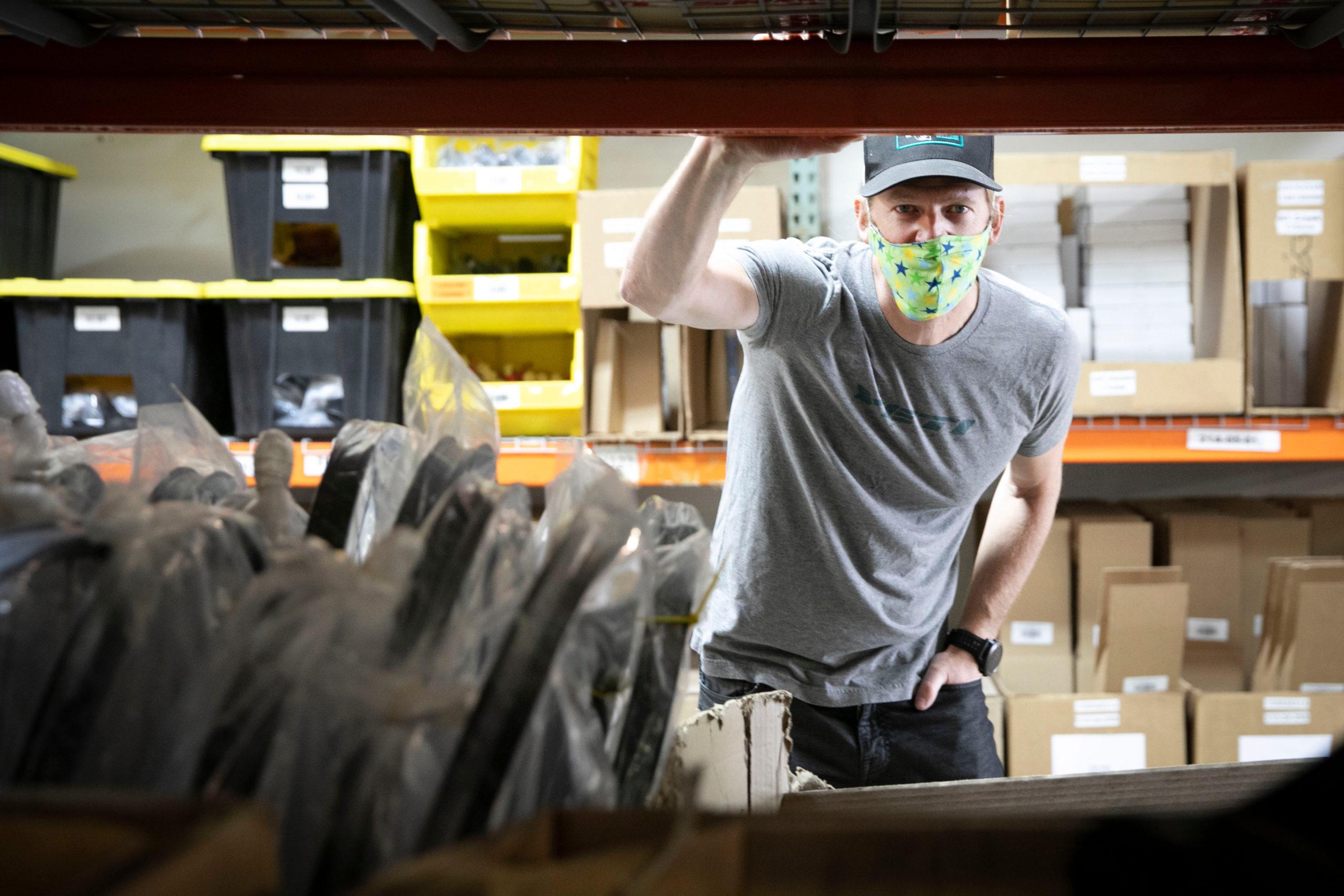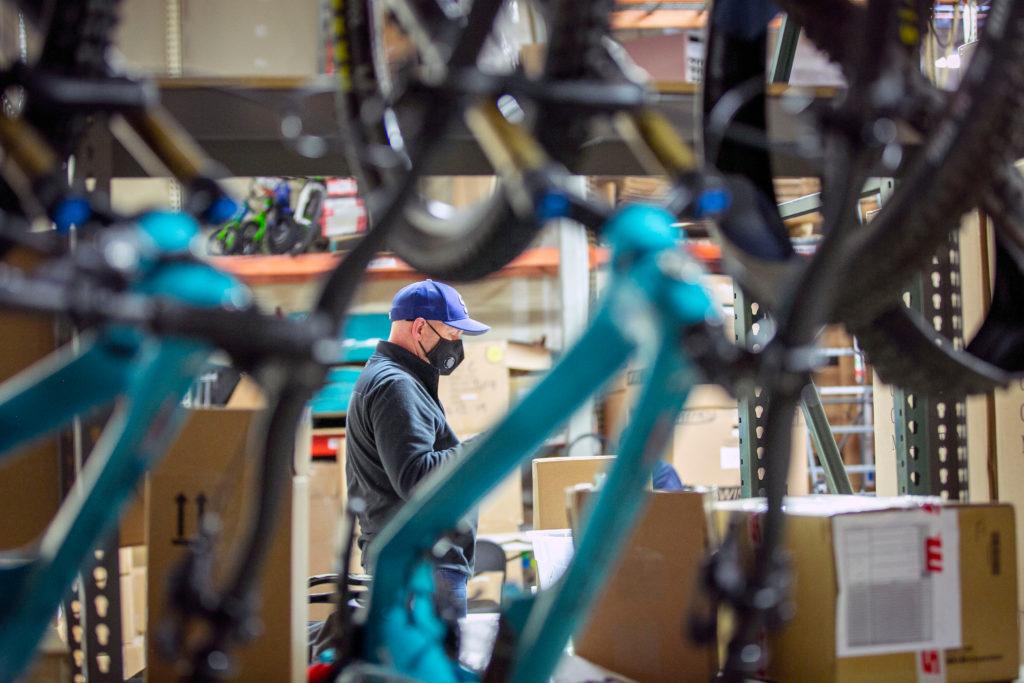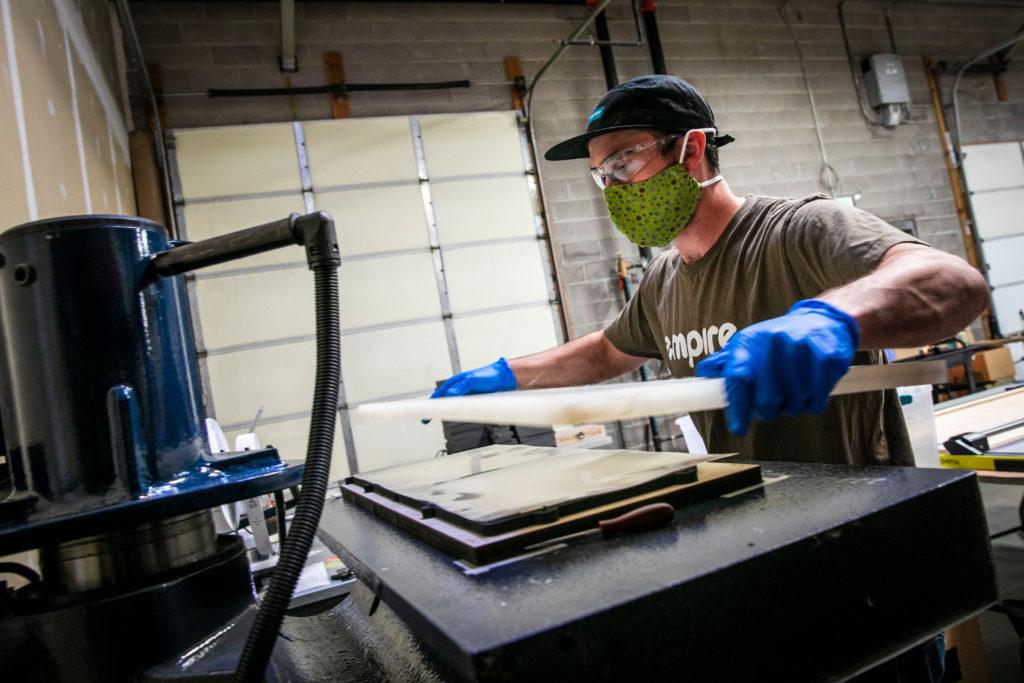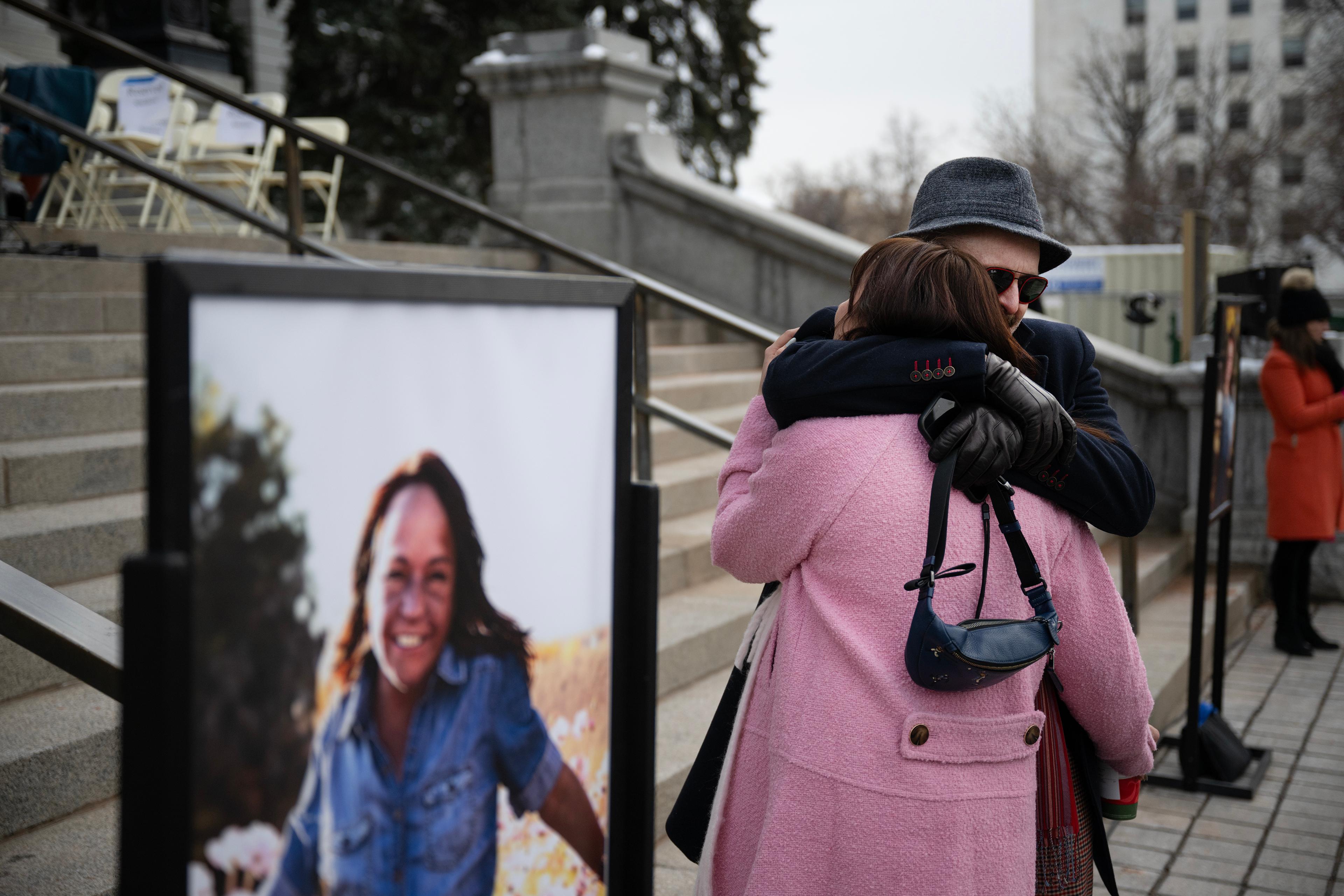
Yeti Cycles normally assembles and ships high-end mountain bikes to buyers and bike shops around the world from their massive Golden warehouse.
With the new coronavirus, bike sales dropped steeply. But the company is keeping everyone on payroll, and Vice President and co-founder Steve Hoogendoorn said they got to thinking about what they could do to help.
“So we have quite a bit of skill in random areas of production. And we have, you know, quite a few engineers on staff too, so we sat down and said, what can we do?” Hoogendoorn said. Someone heard about the face shields and that was it. “We didn't have all the equipment, but it's something we could do pretty quickly.”
The simple plastic face shields add a layer of protection for medical staff, first responders, or any worker still on the job in these times.
Hoogendoorn scrambled to find supplies - a huge roll of plastic from a Wisconsin firm, specially made rivets from an Arizona company, straps donated by Smith, a helmet and sunglasses company, and Black Diamond, a climbing and outdoor company. What could have taken weeks took just days and Yeti was ready to shift from assembling bikes to assembling face shields.
Hoogendoorn spent about $12,000 on equipment, including a machine to cut the plastic that he hopes to repurpose at the shop after this is over. He spent almost $30,000 on materials, enough he estimates to make 20,000 shields.

Thursday was Day 4 of the operation. By 10 a.m. production was in full swing, with separate stations set more than 6 feet apart in the large warehouse.
“Production's going well on the shields,” Hoogendoorn said. “We have 10 bike orders from yesterday that part of the staff is working on and then they will move over for the afternoon and we should have full production over on shields.”
From the start, Hoogendoorn knew the company would offer the face shields for free.
“In a situation like this, it's like, you know, there's a motivation to help however you can and do the right thing,” he said.
And Hoogendoorn has already found takers for as many shields as he can produce after putting out a press release asking who needed them.
“They were all spoken for within 48 hours. They are going to 260 different places. Many hospitals, health centers, senior centers, police stations, RTD, fire departments, flight for life,” he said.
Though Hoogendoorn didn’t need help finding takers, the state has created a website to coordinate between people offering supplies and those who are looking.
Like many small businesses, Hoogendoorn has obtained help through the federal stimulus spending in the Paycheck Protection Program to keep his staff on payroll. But that program, run by the U.S. Small Business Administration, ran out of its initial $349 billion while thousands of small businesses still had loan applications pending. Congress has since approved additional funding.

At Yeti there are still bikes to build. They had some existing orders and some continue to come in.
By about 5 p.m. workers finished up for the day.
“It has been a hectic afternoon, hectic in good ways,” Hoogendoorn said. “Looks like we made about a thousand today, and so good push by the crew and all the equipment is holding up so that’s something to be happy about.”
Hoogendoorn committed to making a total of 20,000 masks and he’s getting requests for more that he has to turn down.
“I just think material is going to be too difficult to find, which is sad,” Hoogendoorn said. “Something you would think would be easy to get such as foam or a plastic washer is not easy at all.”
Explore More Colorado COVID Diaries
By 6:45 p.m., almost 12 hours after he arrived, Hoogendoorn was the last one in the warehouse, planning the work for the next day. He learned today the only plastic he can find now is priced almost four times higher than what they used in the first batch — from 29 cents worth of material per shield to 96 cents. That’s because there’s so much demand for it.
“But the plastic is also nicer,” he noted. “It’s two times the thickness and it has a scratch-resistant and chemical resistant coating on the outside. These should work really well and last longer for reuse.”
Hoogendoorn doesn’t know if he’ll be able to find affordable supplies to make more face shields. And of course, he doesn’t know how the cycling business will look in the months ahead.
Yeti forecasts a 50 percent drop in revenue for April and May; two months when they would normally do at least a quarter of the years’ sales.
"Eventually the factory's going to just kind of have to sit there and wait, uh, until things pick up," Hoogendoorn said. "And then, of course, everybody's gonna want it tomorrow and, uh, nobody will have it. But I think that'd be a good problem to have at this point," he adds with a chuckle.
For now, Steve Hoogendoorn said they’ll piece together what work they can to help the company ride this out.
This story is part of a statewide reporting project with more than 20 newsrooms led by the Colorado News Collaborative to document a day in the life of Colorado on Thursday, April 16.









